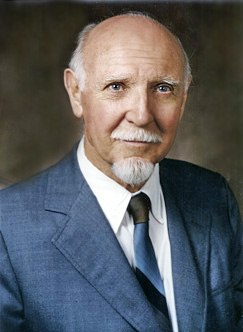With 65+ years of research and application behind it, the 16pf Questionnaire continues to be widely-used and internationally respected.

Raymond Cattell, PhD
Raymond Cattell and whole personality
Raymond Cattell, PhD was a British chemist, statistician and psychologist with a fascination for human personality and behavior. During a stint at Harvard in the 1940s, Cattell began what was to be many years of research into personality traits. Frustrated with personality theories that only seemed to describe separate aspects of personality, he set out to try to identify all of the traits that made up a person. He was influenced by the devastating effects of the First and Second World Wars, and hoped that if human nature could be better understood, it would bring mankind closer to solving global political and economic problems.
Boiling down the traits: factor analysis
In order to scientifically establish a formal framework for understanding personality, Cattell used a statistical technique known as factor analysis. He started out with a list of 4,500 adjectives that could describe people (taken from the English dictionary). He then completed a laborious process of grouping these adjectives into 171 ‘clusters’, which were used in a series of studies where people rated others on the traits. Over a period of several years, Cattell and his team of psychologists then used this data to boil down the set of traits to just 16. These 16 traits were the smallest number of factors believed to meaningfully describe observable behavior.
Validation, research and application
Once he had created a personality inventory to measure these 16 traits, Cattell continued to research its effectiveness and refine the questions until 1978. During this period and beyond, five different editions of the questionnaire were published by the Institute for Personality and Ability Testing, Inc., which was acquired by PAN in 2015. Since its publication, the 16pf assessment has been cited by over 2,700 independent, peer-reviewed research articles, making it a highly reliable, accurate predictor of future behavior and likely success.
The 16pf Questionnaire and the Big Five
Raymond Cattell was also an early contributor to the Big Five school of thought, and his research into personality helped to shape this theory, which is widely accepted today as a standard way of analyzing personality. The Big Five theory proposes that all traits fall under five broad groupings, and these groupings have been found in several different psychometric personality questionnaires. The 16 traits measured by the 16pf Questionnaire can also be grouped into five broad dimensions, known as the Global Factors, which correlate strongly with the Big Five.